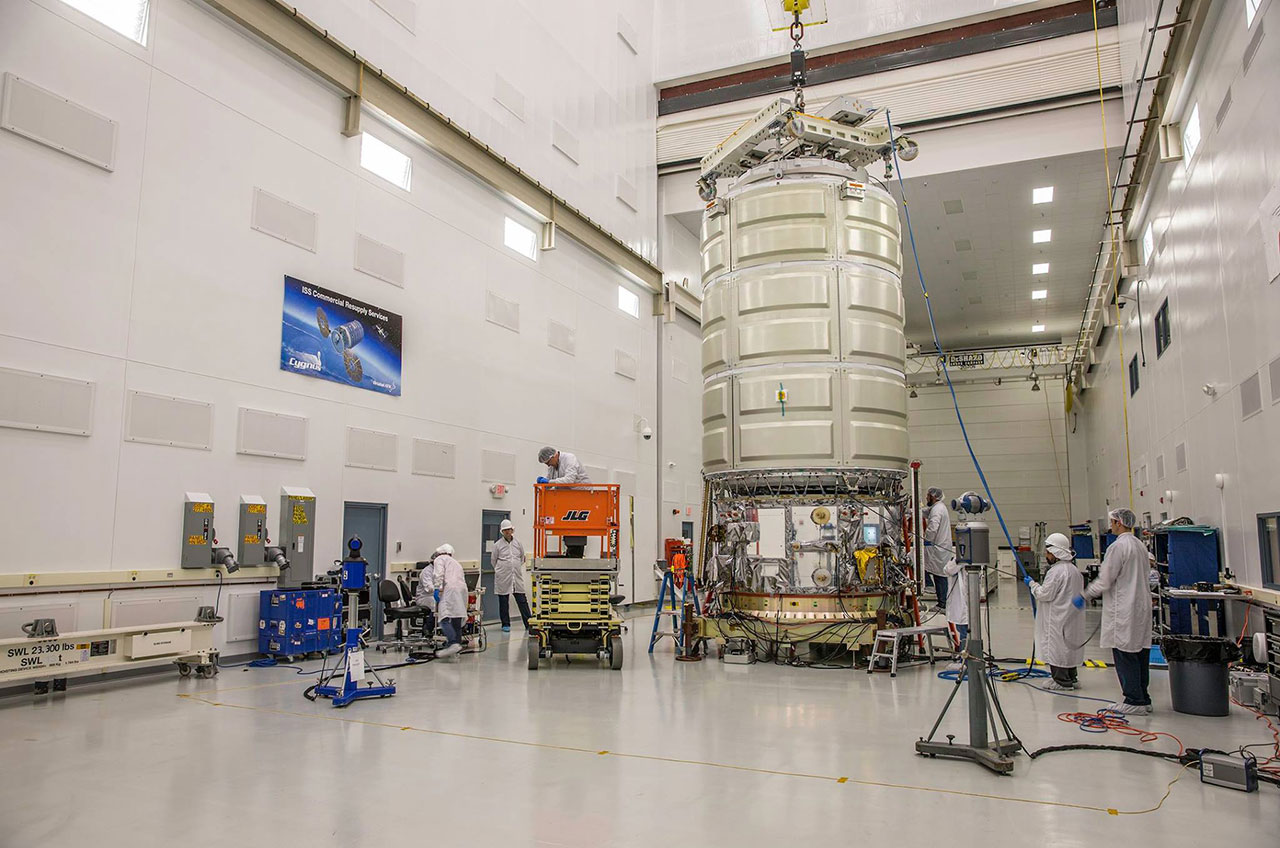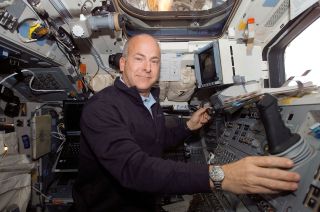S.S. Alan Poindexter: Orbital ATK Freighter Named for Late Shuttle Astronaut

A NASA space shuttle commander who died in a 2012 water sports accident is being remembered with the naming of a space station-bound resupply vehicle, the company behind the spacecraft has announced.
"[The] OA-5 Cygnus [cargo spacecraft] will be named after former NASA astronaut and naval officer Alan Poindexter," Orbital ATK announced last month.
The S.S. Alan Poindexter will launch on Orbital ATK's sixth NASA-contracted mission to deliver scientific experiments, supplies and equipment to the International Space Station. The uncrewed, solar-powered capsule will be the first to fly on the company's redesigned Antares 230 rocket since an earlier Cygnus freighter was destroyed in a launch failure in October 2014.
The Antares 230 rocket will fly using Russian-sourced RD-181 engines, enhancing performance and flexibility, Orbital ATK officials said.
Orbital ATK flew two interim Cygnus missions atop United Launch Alliance Atlas V boosters from the Cape Canaveral Air Force Station in Florida. The OA-5 launch will mark the company's return to the Mid-Atlantic Regional Spaceport's Pad 0A at NASA's Wallops Flight Facility in Virginia.
The launch of the S.S. Alan Poindexter is currently targeted for no earlier than August.
"Poindexter's intersecting career with several members of [the] Orbital ATK management, his connection to Maryland and the Eastern Shore and his distinguished military and spaceflight career make him an ideal honoree for the OA-5 mission," the company stated.
Get the Space.com Newsletter
Breaking space news, the latest updates on rocket launches, skywatching events and more!
Born in 1961, Alan Goodwin "Dex" Poindexter grew up in Rockville, Maryland. A U.S. Navy veteran, he flew combat missions during Desert Storm with Kent Rominger, another future astronaut who today serves as the vice president for strategy and business development at Orbital ATK.

Poindexter was named to NASA's astronaut corps in 1998 and flew twice into space. In 2008, he piloted space shuttle Atlantis on the STS-122 mission, delivering the European Space Agency's Columbus laboratory to the space station. The flight also returned to Earth Daniel Tani, an Expedition 16 flight engineer who is now Orbital ATK's senior director for mission and cargo operations.
Two year later in 2010, Poindexter commanded the space shuttle Discovery on its penultimate spaceflight. The STS-131 mission transported 13,000 pounds (5,900 kilograms) of crew supplies and spare equipment to the space station. By comparison, the Cygnus bearing Poindexter's name will launch 5,300 pounds (2,400 kg) of logistics to the orbiting outpost.
"Orbital ATK, wonderful way to honor Dex, his dedication and accomplishments for NASA," wrote STS-131 mission specialist Dottie Metcalf-Lindenburger on Twitter.
"Thanks for recognizing my [1998 NASA] classmate and our STS-131 commander," wrote Clay Anderson, who also flew on Discovery as a mission specialist.
In total, Poindexter logged 27 days and 21 hours in space over the course of his two missions.
On July 1, 2012, Poindexter, 50, died of injuries sustained in a recreational jet ski accident. He is survived by his wife, Lisa, and their two sons, Zach and Samuel.
The naming of the S.S. Alan Poindexter continues Orbital ATK's tradition of christening its cargo spacecraft for late astronauts who made contributions to the company's goals or to the construction of the space station.
Previous ships were named for astronauts G. David Low, C. Gordon Fullerton, Janice Voss and Deke Slayton.
The most recent Cygnus, the S.S. Rick Husband, named for the commander of the 2003 ill-fated flight of the space shuttle Columbia, arrived at the station in March. It was released from the orbital complex on June 14 and supported an onboard combustion experiment before being destroyed during its re-entry into Earth's atmosphere a week later.
Follow collectSPACE.com on Facebook and on Twitter at @collectSPACE. Copyright 2016 collectSPACE.com. All rights reserved.
Join our Space Forums to keep talking space on the latest missions, night sky and more! And if you have a news tip, correction or comment, let us know at: community@space.com.

Robert Pearlman is a space historian, journalist and the founder and editor of collectSPACE.com, a daily news publication and community devoted to space history with a particular focus on how and where space exploration intersects with pop culture. Pearlman is also a contributing writer for Space.com and co-author of "Space Stations: The Art, Science, and Reality of Working in Space” published by Smithsonian Books in 2018.In 2009, he was inducted into the U.S. Space Camp Hall of Fame in Huntsville, Alabama. In 2021, he was honored by the American Astronautical Society with the Ordway Award for Sustained Excellence in Spaceflight History. In 2023, the National Space Club Florida Committee recognized Pearlman with the Kolcum News and Communications Award for excellence in telling the space story along the Space Coast and throughout the world.
